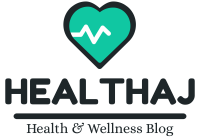
As a nurse, exceeding patients’ expectations is essential in providing the best care possible. In this article, we will discuss five ways that nurses can go above and beyond in their patient care: building trust and rapport, effective communication, providing patient-centered care, continued education, and professional development, and timely and efficient care. By following these guidelines, nurses can significantly impact patients’ lives and improve overall patient satisfaction.
1. Building Trust and Rapport
Active Listening
Active listening is one of the most critical components of building trust and rapport with patients. You’ll demonstrate that you genuinely care about their concerns by giving patients your undivided attention, making eye contact, and providing verbal or nonverbal cues that show you’re engaged. This active listening approach will help build trust and create a strong foundation for a successful nurse-patient relationship.
Showing Empathy
Empathy is the ability to understand and share the feelings of another person. By expressing empathy, you validate your patients’ emotions and let them know they are not alone in their experiences. Empathetic communication can involve simple phrases like “I understand how you feel” or “I can see how that would be frustrating.” Such expressions go a long way in building trust and rapport with your patients.
2. Effective Communication
Clarity in Language
Effective communication is crucial in nursing, ensuring patients understand their care plan, diagnoses, and any potential risks. Nurses should use clear language, avoid jargon, and confirm that the patient comprehends the information provided. You’ll foster better patient engagement and understanding by speaking clearly and concisely.
Nonverbal Communication
Nonverbal communication, such as body language, facial expressions, and gestures, can significantly impact how patients perceive their care. Nurses should maintain an open and approachable demeanor, smile, and make eye contact when speaking to patients. This nonverbal communication demonstrates warmth and professionalism, which can significantly enhance the patient’s experience.
3. Providing Patient-Centered Care
Holistic Approach
Patient-centered care involves considering the whole person, not just their physical health. This holistic approach addresses patients’ mental, emotional, social, and spiritual needs. By adopting this mindset, nurses can create care plans tailored to each patient’s unique situation, ensuring they receive the most comprehensive and effective care possible.
Encouraging Patient Participation
Involving patients in their care can lead to better outcomes and increased satisfaction. Nurses should encourage patients to ask questions, voice their concerns, and actively participate in treatment plans. By fostering open communication and collaboration, nurses can help patients feel more empowered and in control of their health.
4. Continued Education and Professional Development
Staying Up-to-Date
Nursing is constantly evolving, with new research, best practices, and technologies emerging regularly. To exceed patients’ expectations, nurses should commit to staying current in their knowledge and skills. This can involve attending conferences, reading industry publications, and participating in online forums or professional organizations. By staying informed, nurses can provide patients with the most up-to-date and effective care.
Sharing Knowledge
As a knowledgeable nurse, sharing your expertise with colleagues and patients is crucial. Teaching others about best practices, new research, or helpful resources can create a culture of continuous learning and improvement within your healthcare team. Additionally, educating patients about their conditions and treatment options can empower them to make informed decisions about their care.
5. Timely and Efficient Care
Time Management
Effective time management is essential for nurses to meet patients’ needs promptly. By prioritizing tasks, delegating when appropriate, and staying organized, nurses can ensure they provide timely care without sacrificing quality. This efficiency can significantly impact patient satisfaction and outcomes, reducing wait times and promoting a smooth care experience.
Prioritization
In a fast-paced healthcare environment, nurses must prioritize tasks based on patients’ needs and urgency. By quickly assessing each situation and making informed decisions, nurses can ensure that critical needs are addressed first while attending to other essential tasks. This ability to prioritize contributes to timely and efficient care, which is crucial for exceeding patient expectations.
Conclusion
In conclusion, nurses can exceed patients’ expectations by building trust and rapport, effective communication, patient-centered care, continued education, professional development, and timely and efficient care. By incorporating these strategies into their daily practice, nurses can enhance patient satisfaction, improve outcomes, and make a meaningful difference in the lives of those they care for.
FAQs
What is active listening, and why is it important in nursing?
Active listening involves fully concentrating, understanding, and responding to a patient’s words. It is essential in nursing because it helps build trust and rapport, gathers accurate information, and demonstrates genuine care and empathy.
How can nurses improve their nonverbal communication?
Nurses can improve their nonverbal communication by maintaining eye contact, using open body language, smiling, and offering reassuring gestures, such as a gentle touch on the shoulder. These nonverbal cues can convey warmth, professionalism, and empathy.
What is a holistic approach in patient-centered care?
A holistic approach in patient-centered care involves considering a patient’s physical, mental, emotional, social, and spiritual needs when creating and implementing a care plan. This comprehensive approach ensures that all patient well-being aspects are addressed.
Why is continued education and professional development necessary for nurses?
Continued education and professional development are essential for nurses because they help them stay current with the latest research, best practices, and technologies, ensuring they provide the most up-to-date and effective care possible.
How can nurses prioritize tasks effectively?
Nurses can prioritize tasks effectively by quickly assessing each situation and considering factors such as urgency, the potential impact on the patient’s well-being, and available resources. By making informed decisions, nurses can address critical needs first while attending to other essential tasks.







